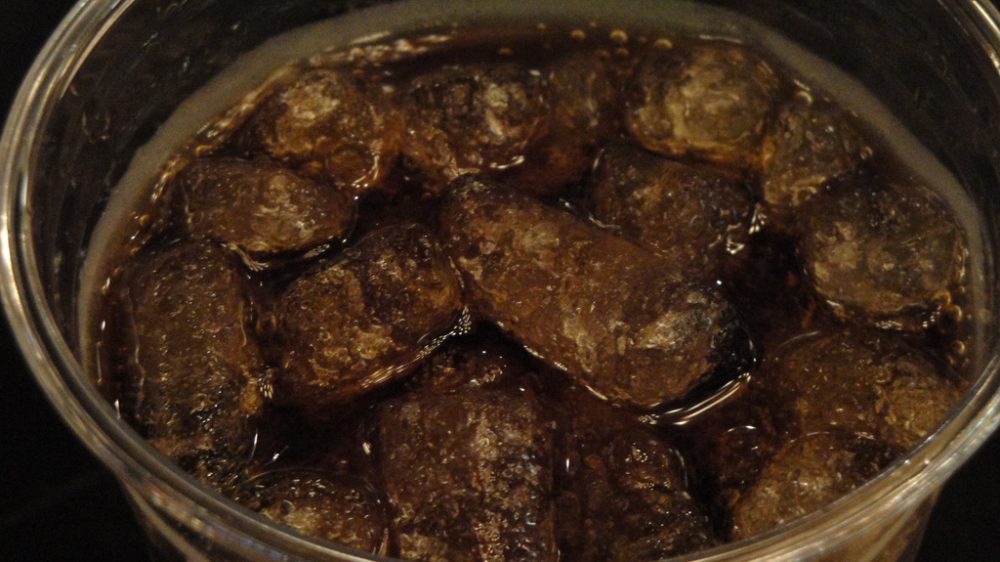Advertisement
Study: Mice That Drank Aspartame-Sweetened Water Gained Weight, Gut Enzyme Blocked

Thinking you'll make up for your Thanksgiving feast in the coming days by filling up on a lot of diet soda? A new study out of Massachusetts General Hospital suggests you may want to think again, especially if the soda contains the controversial artificial sweetener aspartame.
The research found that in mice that drank aspartame-laced water, the sweetener interfered with a key gut enzyme and the mice became more likely to gain weight and get diabetes.
"This enzyme — intestinal alkaline phosphatase or IAP — is very beneficial in terms of preventing obesity and diabetes. So the aspartame, by blocking this enzyme, had its negative effects on the mice," says Mass. General and Harvard Medical School Professor of Surgery Richard Hodin, the study's senior author.
Previous research had found that aspartame, an ingredient of many diet sodas, seemed to lead to weight gain rather than loss. The new study, Hodin says, pins down a possible mechanism for that unwanted effect.
"There is a lot of evidence that aspartame, as well as other sugar substitutes, don't work the way they're supposed to," he says, "and the reasons for them not working are not very clear." Theories have included the possibility that artificial sweeteners increase appetite. "But our experiments give at least a likely explanation for why aspartame may not work, and that's because it blocks this gut enzyme, IAP."
IAP, Hodin says, normally helps enable our symbiosis with the trillions of bacteria in our gut.
Aspartame, found in thousands of food products and sold as NutraSweet and Equal, has raised a variety of health concerns over the years, to the point that some sodas have begun to advertise that they are "aspartame-free." Pepsi dropped aspartame last year, then re-introduced it this year after its sales plummeted.
From the Mass. General press release:
In a series of experiments the team first found that the activity of IAP was reduced when the enzyme was added to a solution containing an aspartame-sweetened soft drink but remained unchanged if added to a solution with a sugar-sweetened beverage. IAP is primarily produced in the small intestine, and the researchers found that injecting an aspartame solution into segments of the small intestines of mice significantly reduced the enzyme’s activity. In contrast, IAP activity remained unchanged in bowel segments injected with a saline solution.
To better represent the effects of consuming beverages or other products containing aspartame, the researchers followed four groups of mice for 18 weeks. Two groups were fed a normal diet, one receiving drinking water with aspartame, the other receiving plain water. The other two groups were fed a high-fat diet, along with either aspartame-infused or plain water. Animals in the normal diet group that received aspartame consumed an amount equivalent to an adult human’s drinking about three and a half cans of diet soda daily, and aspartame-receiving animals in the high-fat group consumed the equivalent of almost two cans.
At the end of the study period, while there was little difference between the weights of the two groups fed a normal diet, mice on a high-fat diet that received aspartame gained more weight than did those on the same diet that received plain water. Aspartame-receiving mice in both diet groups had higher blood sugar levels than did those fed the same diets without aspartame, which indicates glucose intolerance, and both aspartame-receiving groups had higher levels of the inflammatory protein TNF-alpha in their blood, which suggests the kind of systemic inflammation associated with metabolic syndrome.
